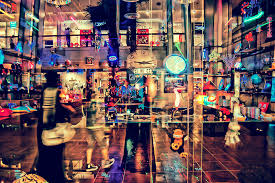Have you ever experienced feeling faint or lightheaded after indulging in your favorite cup of coffee? If so, you’re not alone. Many individuals have reported similar experiences, leaving them wondering why their beloved caffeinated beverage could have such an unexpected effect.
why did drinking coffee make me feel faint ? Drinking coffee can lead to lightheadedness or faintness in some individuals due to its stimulant effect on the nervous system, which can cause a temporary drop in blood pressure. Additionally, coffee is a diuretic, leading to dehydration and potentially affecting blood pressure.
Why Does Drinking Coffee Sometimes Make Me Feel faint?
Feeling faint after drinking coffee can be due to several factors, including:
Caffeine sensitivity: Some people are more sensitive to caffeine than others and may experience symptoms like lightheadedness or dizziness even with small amounts.
Blood pressure changes: Caffeine can cause a temporary spike in blood pressure, which for some individuals may lead to a feeling of faintness, especially if they are prone to blood pressure fluctuations.
Dehydration: Coffee is a diuretic, which means it can lead to increased urination and may cause dehydration if you’re not also drinking enough water. Dehydration can result in feeling faint or lightheaded.
Hypoglycemia: Caffeine consumption can sometimes lead to a drop in blood sugar levels, particularly if you drink coffee on an empty stomach or if there is a long interval between meals.
Anxiety or panic attacks: For some individuals, the stimulating effects of caffeine can trigger anxiety or panic attacks, which can include symptoms like feeling faint.
If you frequently feel faint after drinking coffee, it might be advisable to consult with a healthcare professional to rule out any underlying conditions and to discuss your caffeine consumption.
Understanding the Effects of Caffeine
Caffeine is a stimulant known to affect the nervous system. It enhances alertness but can also lead to certain unwanted side effects, such as feel faint. Caffeine blocks the adenosine receptor, a substance in the brain that promotes sleep, thus disrupting the normal flow of blood to the brain.
What is the maximum amount of caffeine that is considered excessive?
The amount of caffeine differs from one cup of coffee to another, depending on the type and how it’s brewed. On average, a regular coffee contains about 95 mg of caffeine. Health experts suggest you should limit your caffeine consumption to approximately 400 mg per day (approximately 4 cups of coffee), to avoid potential side effects, including the dreaded dizziness after drinking coffee.
What is the Cause of Dizziness After Drinking Coffee?
Now we understand that caffeine can make one feel dizzy. But what exactly happens in your body that results in this dizziness after drinking coffee?
Coffee as a Diuretic: Understanding the Connection to Dizziness
Coffee acts as a diuretic, promoting increased urine output. This can lead to dehydration, reducing the volume of blood available for circulation, and hence, indirectly diminishing the blood flow to the brain. This can cause you to feel dizzy, nauseous, lightheaded, and even faint.
Does Caffeine Intake Disrupt Your Nervous System?
The disruption of the nervous system is another major effect of caffeine, especially when you drink too much. Excessive caffeine consumption can put your nerves on edge, create jitter, and make you feel dizzy. Therefore, it is important to monitor the amount of caffeine involved in your daily coffee consumption.
Exploring the Role of Adenosine Receptor and Blood Flow in Caffeine-Induced Dizziness
As mentioned, caffeine blocks adenosine receptors, a substance in your brain that typically helps you feel relaxed and sleepy. This blockage alters your blood pressure and blood flow to the brain, which can lead to feelings of dizziness.
How Can I Avoid Feeling Dizzy After Drinking Coffee?

While coffee lovers might not appreciate the idea of eliminating their beloved cup of joe, some might be willing to explore alternatives or make adjustments to their consumption habits to avoid feeling dizzy.
Regulating Your Coffee Intake to Avoid Dizziness
One way to avoid feeling dizzy after drinking coffee is to control your daily intake. Deducting a cup or switching to decaf coffee might help reduce the adverse effects of caffeine.
Natural Methods: Avoiding Coffee-Caused Jitters and Lightheadedness
Drinking plenty of water to stay hydrated, ensuring you eat before you drink your coffee, and exercising regularly are among natural methods to control the side effects of coffee. These could help prevent the feeling of being dizzy after drinking coffee.
Alternatives to Coffee: Can They Make You Feel Less Dizzy?
Exploring alternatives to coffee like herbal teas or caffeine-free options can help avoid the side effects of regular coffee. Also, these alternatives could make you feel less dizzy and still provide a comforting routine akin to your standard coffee break.
Q: Can daily caffeine consumption lead to feeling faint or dizzy?
A: Daily caffeine intake, especially from multiple cups of coffee per day, can potentially cause dizziness or lightheadedness in some individuals. It’s important to monitor your caffeine intake and consider adjusting it if it affects your well-being.
Q: Why do I feel even more lightheaded after drinking coffee?
A: Some people may feel even more lightheaded or dizzy after consuming coffee, especially if they are sensitive to caffeine. It could be helpful to reassess your daily caffeine consumption and consider reducing it if necessary.
Q: Can I experience dizziness when drinking other caffeinated beverages besides coffee?
A: Yes, other caffeinated beverages such as tea or energy drinks contain caffeine, which can also lead to feelings of dizziness or lightheadedness in some individuals.
Q: What should I do if I feel dizzy or faint after drinking coffee?
A: If you experience dizziness or lightheadedness after consuming coffee, it might be beneficial to stop drinking coffee temporarily and consult a healthcare professional to determine the best course of action.
Q: What are the effects of caffeine on the body that can lead to feeling faint?
A: Caffeine, found in coffee, can affect the central nervous system and may lead to feelings of dizziness, especially when consumed in large amounts or by individuals who are sensitive to its effects.
Q: Is it normal to feel nauseous or dizzy after drinking coffee?
A: Some individuals may experience dizziness and nausea after consuming coffee, especially if they are sensitive to caffeine or if they drink coffee before eating. Listening to your body’s reactions and adjusting your coffee consumption accordingly may help alleviate these symptoms.
Q: Are there alternative approaches to mitigate the effects of coffee-induced dizziness?
A: Besides reducing coffee intake, some individuals find that consuming more water, having a meal before drinking coffee, or opting for lower-caffeine alternatives can help minimize the feelings of dizziness or faintness associated with coffee consumption.


Leave a Reply